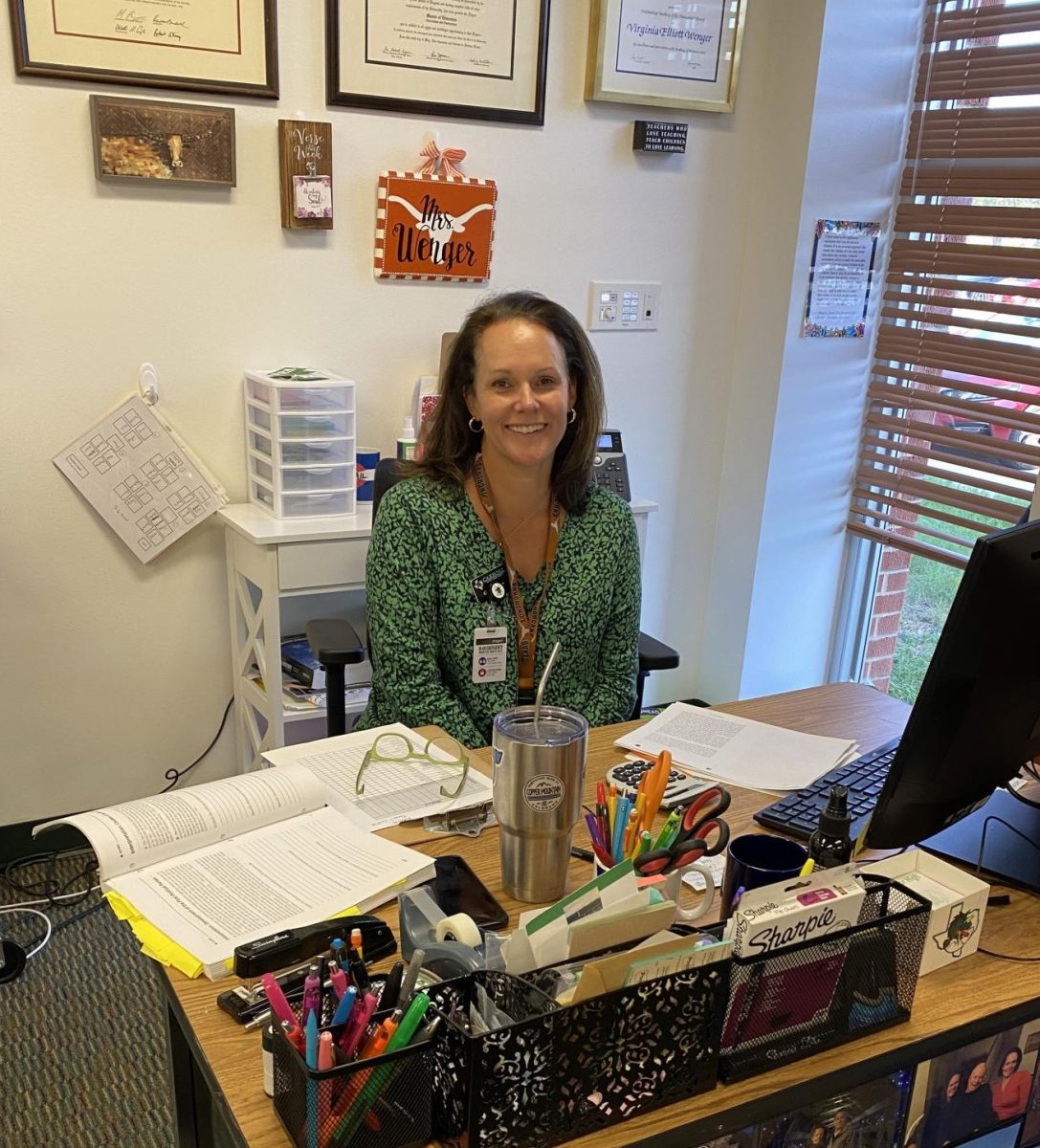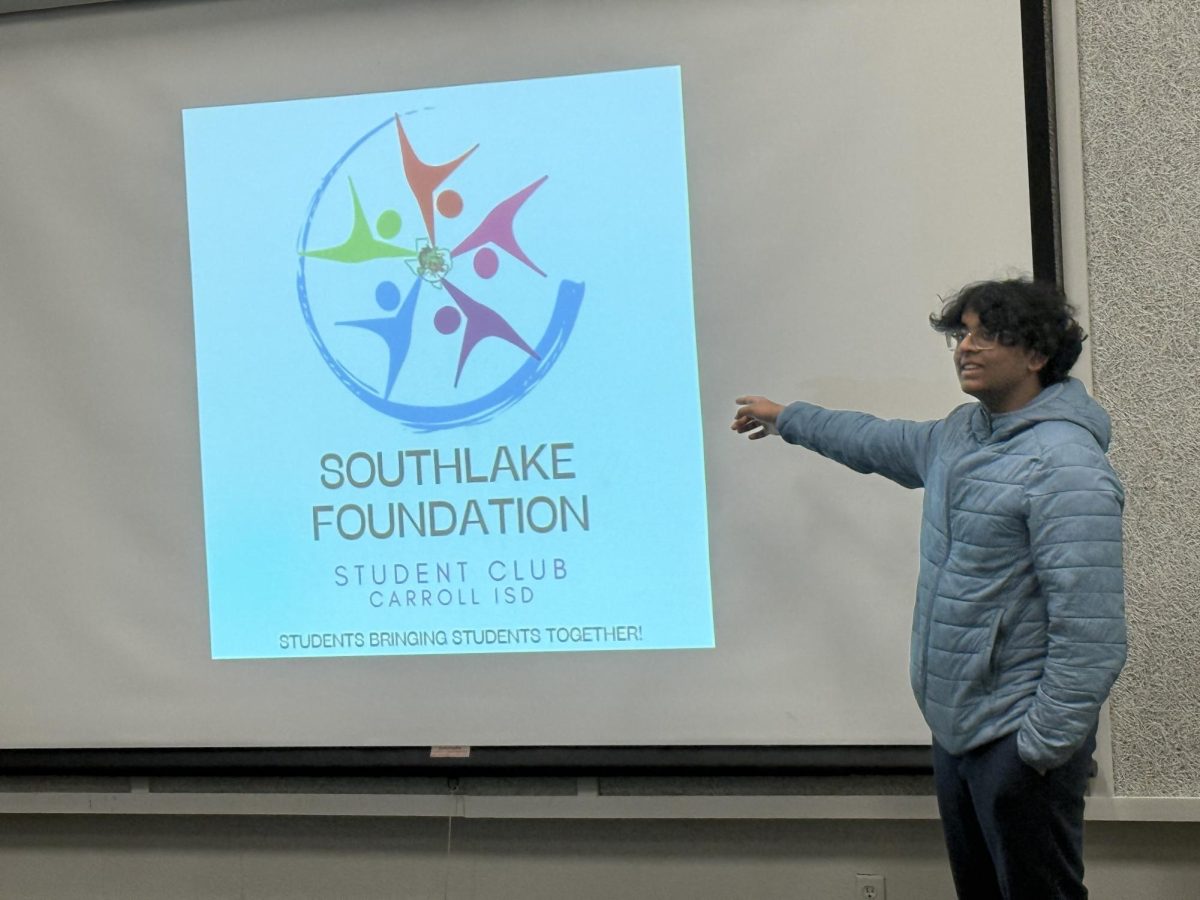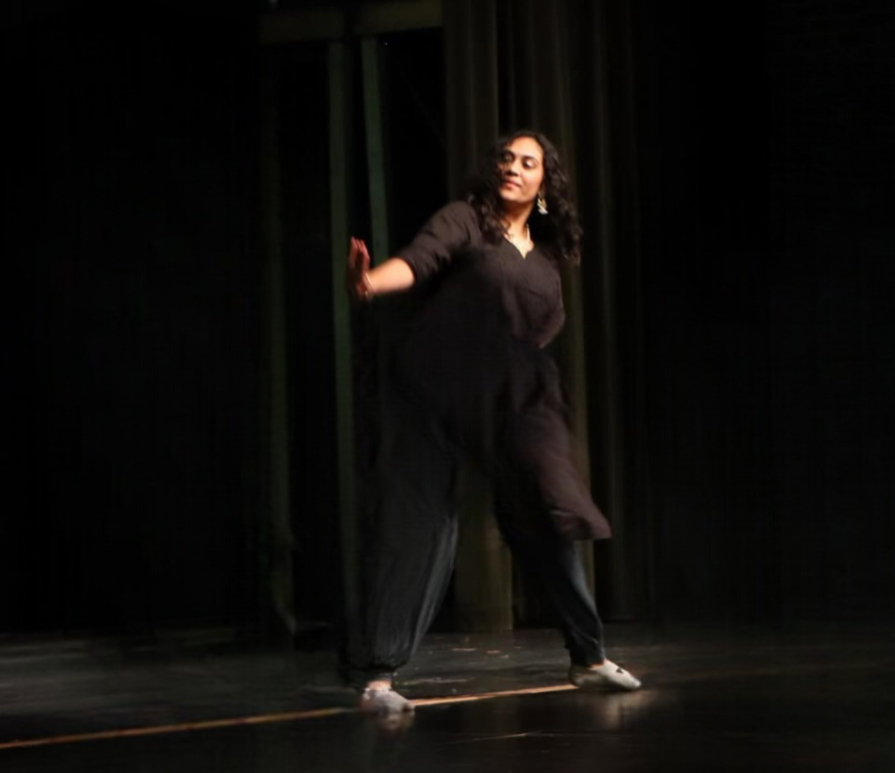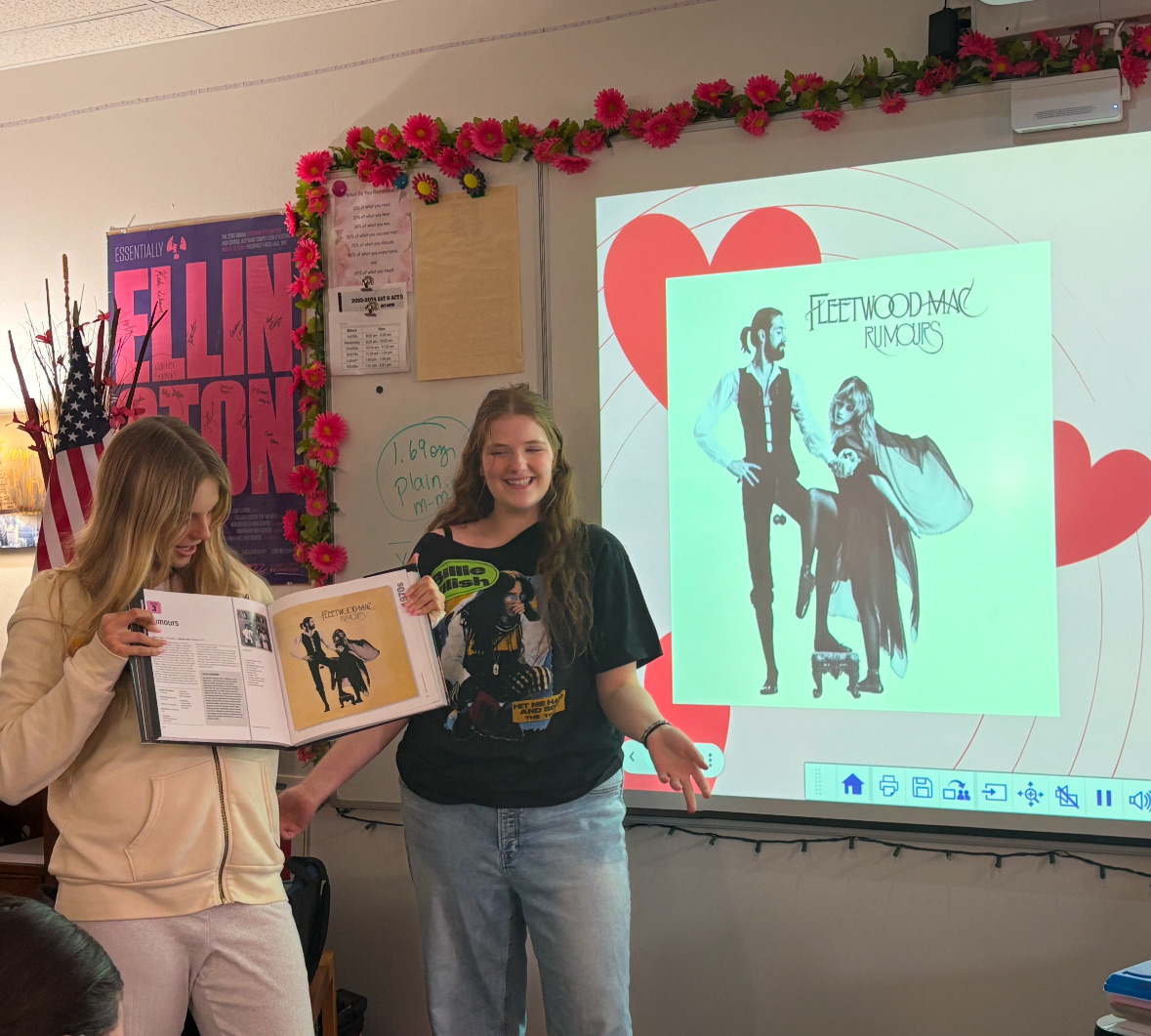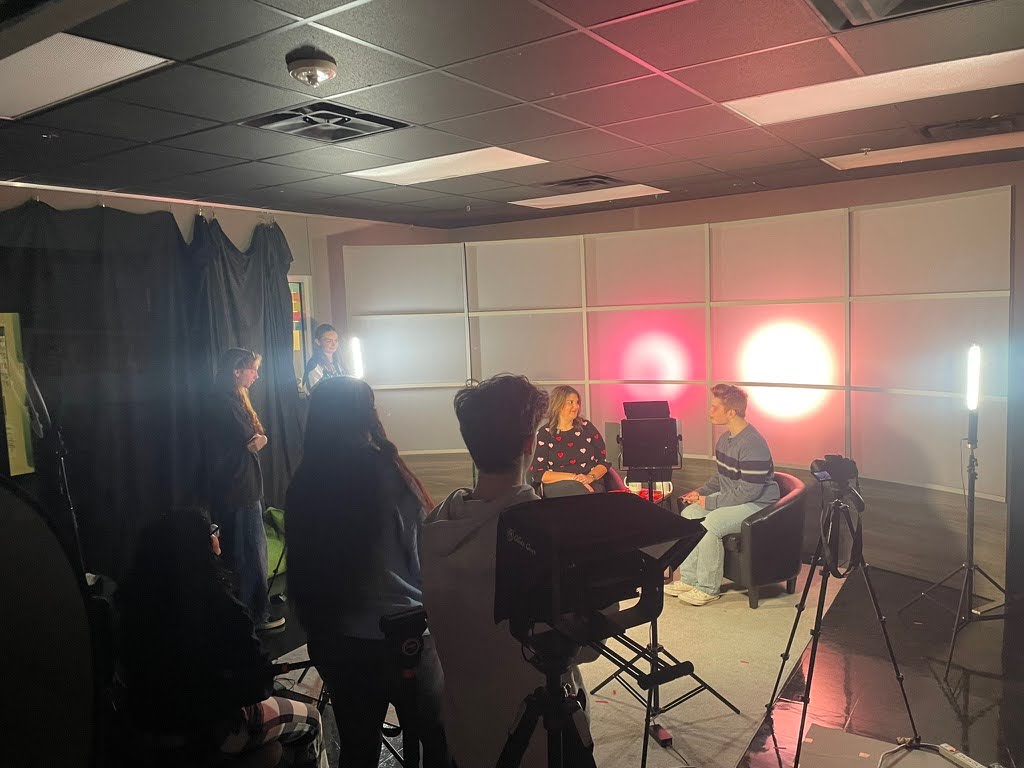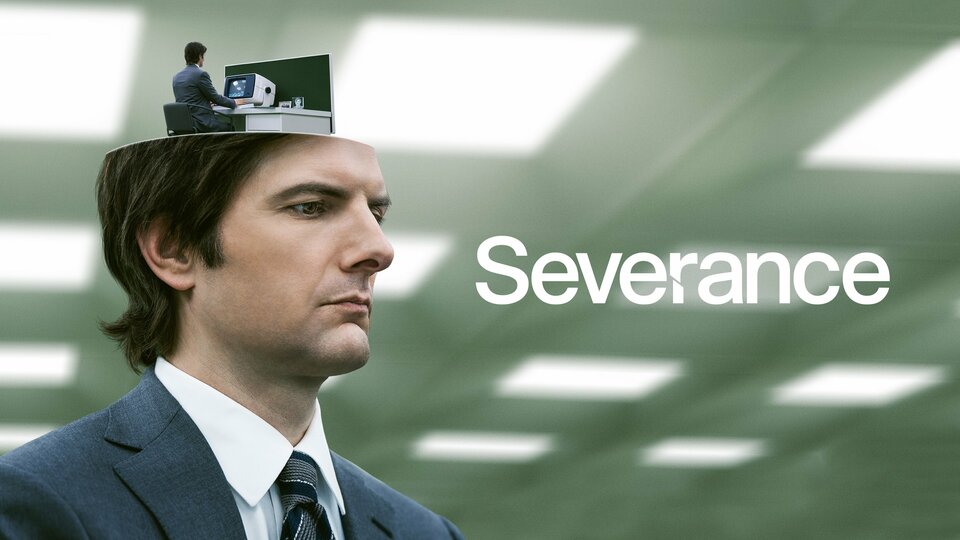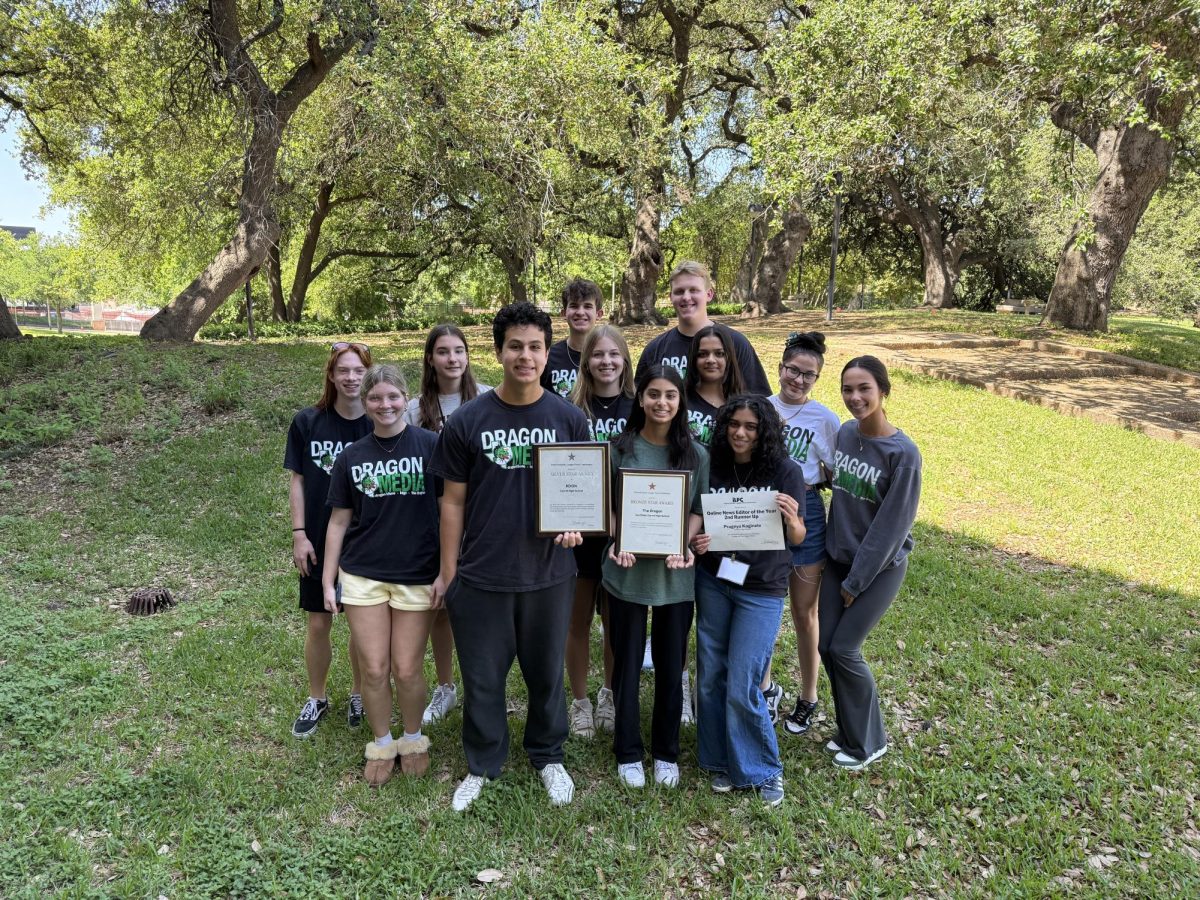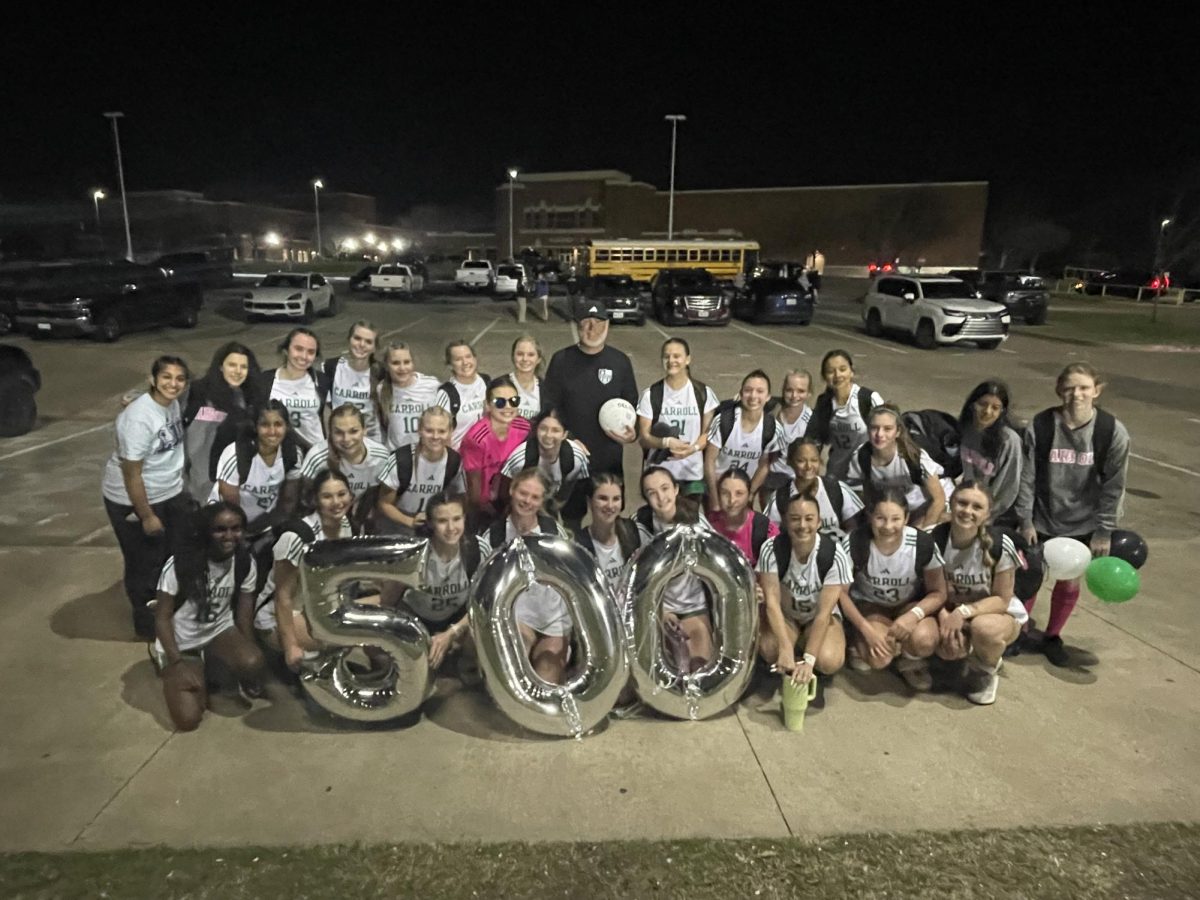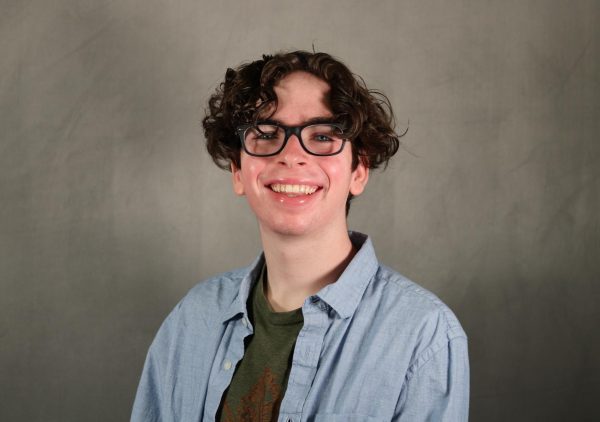Q: What is your favorite book right now?
A: Oh, gosh. One of my favorite books I’ve ever read is “Lonesome Dove” by Larry McMurtry. It’s an epic saga set during the cattle drives in the American West. Two of my favorite characters are Augustus McCrae, and Woodrow Call, who are retired Texas Rangers. Larry McMurtry was such an amazing builder of character, that you feel like you’re on that top cattle drive and you feel like they do, and it’s just a beautiful story. It’s based on Charlie Goodnight and Oliver Loving’s relationship too, who were real people. It’s just really a good story, good everything.
Q: Do you like that historical aspect in books?
A: I love historical fiction, probably because I love history. I love all kinds of books, it just depends on what I’m reading at the time. Right now I’m into stupid mom books that are like “mind candy” just because they’re easy to read, and I get home and my brain is tired after the day. But, I like fantasy; I read all of “Game of Thrones”, and then I realized it wasn’t finished. I didn’t know that it wasn’t finished, so that made me mad. I don’t read horror, but my husband reads a ton of horror. He will give me Stephen King when it’s not scary. So I love Stephen King too, when it’s not, like, “Pet Cemetery”. I like “The Green Mile” and “Bag of Bones”. Those are beautiful. But I do like historical fiction a lot, and I like English history a lot too. I’ll do all of that, and then I’ll like the classics, probably one of my favorite classics is “Pride and Prejudice”. I love that book, and I think it’s beautifully written. Obviously, she’s amazing. But I also liked Mark Twain. So “The Adventures of Huck Finn” and “Tom Sawyer”, both two of my favorites as well. And then I like “The Great Gatsby”, too, but you’ll either love it or hate it.
Q: What’s been your journey to teaching?
A: I knew I was going to be a teacher, from the time I was little-bitty. I’m one of those lucky people who, I think, was called to do this. My sister was my first student and we were on our deck in Austin and I used to boss her around all the time and grade her papers and I was really mean. I loved my junior English teacher at Westlake High School in Austin, Susie Phlatau. She inspired me to do English or history. So when I was at UT, I was a history major at first and then I became an English major because my advisor told me that I needed to be in English, I needed to have both, and English is that foundational one, and I loved history. The irony of that is that my first job out I taught United States history to eighth graders and ninth graders, both sides, both sections of it. So, my first job was teaching history, but I’ve taught history, geography, and then English I, and then English I and II at Highland Park. Then I took off 10 years; I was a Christian Ed director.
After that, I got my master’s degree in education. That’s when I was at home with my boys and I decided to go back to teaching—no one would hire me, because I was a mom and I didn’t know what I was doing, evidently. So I was an aide at Westlake Academy, and then Mr. Wilson hired me at Dawson. I was there for 10 years and now I’m here—partly because we had a budget crunch at the middle school level, and if I had stayed some younger teachers weren’t going to be able to stay. But also because I was ready to be back in high school, because I really do like high schoolers. I like middle schoolers too, but I was tired. Chasing kids down the hall and telling them not to put something in their backpack from the trash can, but juniors are different. I like them a lot, too. My sister teaches in Westlake. She teaches Gifted and Talented at Forest Trail Elementary, and she loves the little bitty ones and blegh. I mean, they’re cute, but I don’t want to. They’re like puppies in a basket.
Q: How have you had to adjust your approach to teaching with this class? You’ve already been doing the Humanities at Dawson, so how different is it?
A: It’s taking it up a level, especially the English, the rhetorical analysis part of it, because these kids can already write. So now we’ve got to be able to do this kind of writing. And we’ve got to be able to do this kind of writing. Dr. Irish has been generous enough to give me all of his stuff, so taking his stuff, because I can’t be Dr. Irish. But, I can take his foundation of it and then adjust it for my own uses. Which is a challenge, it’s going to be a challenge all year. The greatest thing is, I have no discipline problems. It’s like, “Wow, that’s amazing!” [The kids] just do.
I’ve gotten used to the three hours with them, so that’s good. I try to change activities that we do frequently, so that they don’t feel like this is three hours with me. I’m trying to bring in more hands-on or active things that they can do to learn the history. I know that they need to read it before they come in with me but, at the same time, they don’t know it very well. So we’re trying to get there. A lot of what I do I did at Dawson too, it’s just taking it up a notch, but also bringing in those kinds of middle school, fun, gamey kind of things too, to make the history come alive and to make the kids want to be here.
That’s awesome. Yeah, getting people to pay attention for three hours is hard.
Yeah, it’s hard! Yeah, it’s hard for me! It’s hard. I mean, I teach four classes in a row, on “A” Days. So by 3:10, I’m like, “I’m exhausted.” So we just got to keep on going and push through it. When I go home on “A” days, I don’t get anything done, because I’m too tired.
Q: So, how many classes do you have?
A: I have four [blocks] on “A” day and then the 6/7 blocks on “B” day. I have three double-blocks of AmStud. So my classes are smaller, but I have a feeling it’s so that they can get bigger and I can relieve the APush teachers next year. But it’s a unique experience—as it is in eighth grade—because if you don’t like history, then you don’t need to be an AmStud. Not because we don’t do English, but it’s because my English curriculum is driven by the history that I teach. So if we’re learning the American Revolution, you’re gonna read Patrick Henry, and you’re gonna read Thomas Jefferson, and you’re gonna read Abigail Adams and all that stuff. I don’t have the luxury of not having American literature. It’s got to be congruent. So people are like, “We haven’t done English,” which we have, they just don’t realize it because it’s in historical documents a lot of times.
I’m also hoping to bring some novels in that Dr. Irish didn’t do, but that’s the English teacher in me. We’ll probably do “Huck Finn” next quarter, and then we will probably do “The Great Gatsby”. I’m gonna have to sacrifice some of the short stories that he did, but I’m gonna have to be okay with that. I feel like everyone once in a while we need to read a book and one of the big ones, especially when you’re a junior, if you leave here without reading or having read some American literature book, then that’s bad. So you know, like, you have to go back and read “The Great Gatsby.”
Q: What’s been the biggest change, coming to the Senior High from Dawson?
A: Middle school teachers have to do a lot that senior high school teachers do not have to do. So, middle school English teachers, in particular, have to do a lot of assessments that have nothing to do with their class, and they have to put that data in the computer, and then they have to track that data, and they have to make sure that their kids are on track to pass the STAAR test, and then if a kid is struggling, they have to have documented time that they’ve tutored that kid. That is a lot on a teacher. Plus, they have [hall or car line] duty, I don’t have duty. I’m like, “Huh! We don’t have duty?” You know, things that, because of the age group, you have to do. So it’s been very freeing not to have that stuff. Of course, I have to track data, just like a middle school teacher does, but it’s just not as intensive.
We at the senior high school meet, but we don’t meet like we did in middle school. My time is spent getting ready for my students and assessing what they’ve done, instead of “Oh I have to go to this meeting, and I have to go to this meeting, I have to do this.” Now that may be a byproduct of Mr. Wilson’s leadership. Or it may be just the nature of the beast, I don’t know, the middle school, you’ve got a lot you have to do. With that eight, nine period day, it’s a lot, it’s a lot. You gotta be ready every day. Here, because you’ve got the block schedule, my “B” days aren’t as stressful because I’ve already done it twice, and so I know what I’m doing. Especially in teaching something new, to have that you’ve taught it twice, and then “B” day’s kind of a relief. Then you go into “A” day getting ready to figure out how you’re going to teach that. So that’s been a blessing, because when I started at Dawson, it wasn’t like that. I had to have something for them every single day.
Q: Is there anything that you’re more excited to do in AmStud? Versus what you weren’t able to do in Humanities?
A: The whole second half of history! I mean, we’ve “killed Lincoln” a million times, and we wouldn’t want to pass that, hah! So I’m excited about that, I haven’t taught that since I taught at Forest Meadow Junior High School in the 90s. So while I know it, it’s going to be like dusting the cobwebs off and going, “Oh, right, totally forgot about that.” And then getting into the modern age. The other thing is that the discussions here, and kids are smart, and you have to be on it. They will ask questions, and I have to be willing to say, “I don’t know, we’re gonna have to look it up.” I’ve learned that, as an older experienced teacher, that you’re just better off saying that than acting like you know when you don’t really know.
And then being able to tackle hard topics, this district is having some growing pains in that area, and the kids are very sheltered here. We have to tackle hard topics in AmStud, because we have, we have a very messy, very amazing, beautiful past that has some horrible things in it that we have to be able to talk about. Because if we don’t talk about it, then they’re not going to be ready for it in college. And when they get to college, they’re going to be the sheltered provincial kids that they shouldn’t be, because they’re all smart. My goal is always when they leave me, I want them to feel confident, but I want them to have no idea where my political leanings are. I’m good at playing devil’s advocate, and it’s not my job in here to give them my political views. Their job is to figure out what they are going to believe. In the end, if they ask, I never tell them, they never know. If they ask me who I vote for, I always tell them, “That’s rude. And my grandmother would be appalled that you asked me that.” They’re always like, “Really?” I’m like, “Yeah, you don’t ask somebody that. Just like you don’t ask somebody about what they got on their test.” That’s my goal.
Q: How’s the student-teacher relationship changed, jumping up to high school?
A: It’s changed a lot less than I thought it would. I have relationships with some of my students already. That’s been a blessing because we can build on those relationships. The juniors are much more open than I thought they would be and much more kind, like, they’re not as skeptical as I thought they were going to be with me coming in, so I’ve relaxed a lot from the beginning. It’s easier because they’re almost adults. And so you have these conversations with them, and they’re like, “Oh, I know, I know, I know, okay, let’s let’s do this.” It’s just different, because eighth graders are still a little, a lot of them.
I mean, the beauty of eighth graders, you have some that have bedtimes and some that have curfews and everything in between. So here, they’re having to start to manage themselves as adults, and having to make sure that their car isn’t parked in the stupid place it’s not supposed to be parked. At the same time, you want to give them that freedom so that they’ll flourish when they get to college, or whatever their next adventure is. Most of the people go to college here, but you know, some people do gap years, so you’ve got to help them learn to manage themselves. Instead of getting them ready for high school, now I’m getting them ready for college. So I have kids that come back and say “If I hadn’t had you, I would have died at the high school,” and I’m like, that’s because I was a high school teacher. Now it’s time to get them ready for whatever their next adventure is. Because one of my son’s is going to be an architect, or right now is going to be, and another one’s going to be an engineer. Their communication skills are important. My job of it’s not only American history, and it’s not only AP Language, it’s also how can I get you ready to do that, too? So it’s a little bit different.
Q: Anything else you’d like people to hear?
A: I hope a lot of people start thinking about a career in teaching. I think that if we don’t start recruiting our best and brightest, all of your children are going to be taught by a bunch of idiots. Junior Maria Mazey is one that’s thinking about doing it, and just trying to show her some of the things that I’m doing so that she knows why I do what I do, but she wants the little ones too. But just to tell her, you know, have experience with all different age groups and do everything you can, because she’d be great with anybody. But I think too much of what we do is try to keep people out of the profession, “Don’t be a teacher, it’s bad. You have to grade papers, you have to do all this stuff.”
But there are so many good things, and the only thing that’s going to get this country to the next stage of greatness is keeping people in the classroom. I’m worried that we’re going to not have enough people to teach. It’s just like doctors, we’re not gonna have enough doctors to take care of our population. Well, we have to have people in these classrooms that can do this too. It’s not an easy job, and not everybody can do it, and people think they can when they really can’t. But if you can manage people, then you can manage kids, and if you can manage relationships, then you can manage kids. I just hope that some people go into teaching so that we have teachers, that’s just what my hope is.
